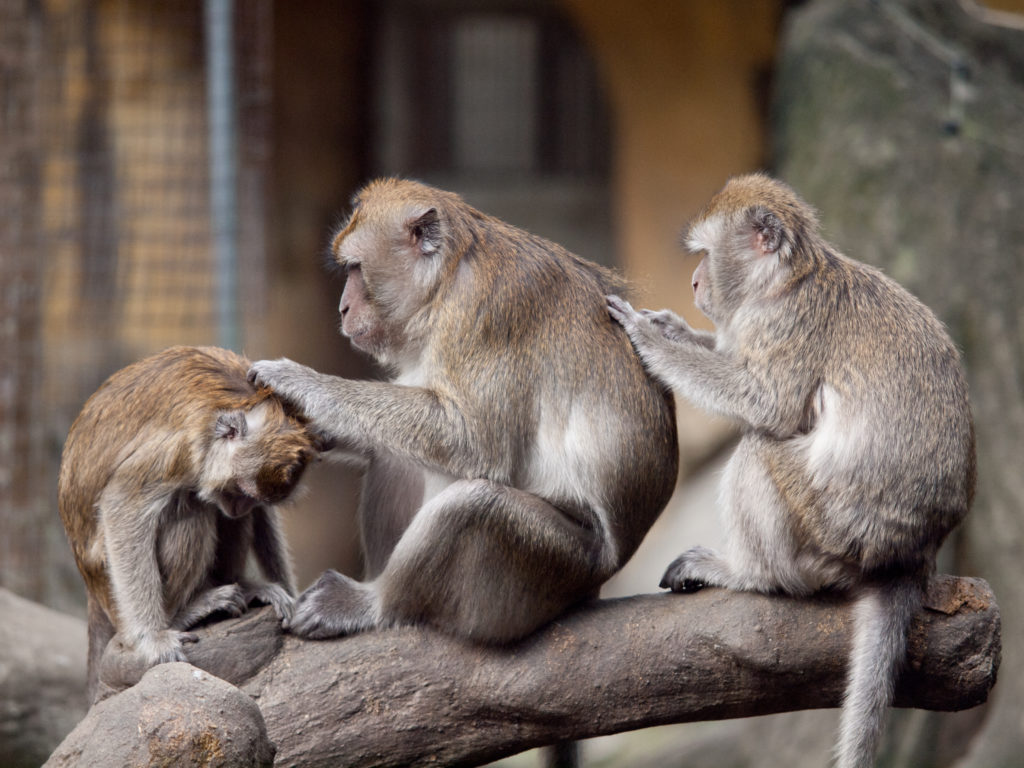
The headline is a bit “click baity” but it is what a group of researchers found. To be more specific they found in macaques (cute monkeys) in the wild that having more grooming partners grew different regions of the brain. Grooming is the primate version of having a heart-to-heart with a friend, or cuddle with your family or romantic partner.
What is interesting in this research is that it tracked this over time and hence also the growth and development of brain regions over time. Previously we have only been able to associate regions of the brain in animal models and human beings that correlate with sociality.
This is all good and well but it doesn’t give us an indication of causation, a chicken or egg problem: are those with enlarged social regions in the brain more social, or does socialising increase the size of these regions?
These researchers have shown for the first time that grooming, which is an intense form of socialising in macaques does actually grow these regions. And what do these regions do?
Well, the regions that grew were those that are specifically associated with social decision-making and empathy (mid-superior temporal sulcus and ventral-dysgranular insula, if you’re interested).
So, in short, or a more correct headline, is that socialising grows the regions of your brain that are involved in social decision making and empathy.
Probably no bad thing to have!
Reference:
Camille Testard, Lauren J. N. Brent, Jesper Andersson, et al.
Social connections predict brain structure in a multidimensional free-ranging primate society.
Science Advances, 2022; 8 (15)
DOI: 10.1126/sciadv.abl5794
More Quick Hits
Learning Before Age Five Can be Seen in the Brain Forty Years Later
Quick HitsDaily brief research updates from the cognitive sciences ducation before age five leaves structural changes to the brain, identifiable forty years later — impressive! This is the beauty of long-term longitudinal studies (the negative side...
Exercise in Childhood Predicts Healthy Brains (into Adulthood)
Quick HitsDaily brief research updates from the cognitive sciences k, we all know by now that exercise is good for you. Many of you may also be more than aware that exercise is a potent stimulator for the brain encouraging brain growth and...
The Surprising Truth of Why Powerful People can be Toxic
Quick HitsDaily brief research updates from the cognitive sciences e’ve all heard the stories of toxic bosses, and powerful people who happily destroy other people’s lives, and show no compassion to those less fortunate than themselves. There is a...
Leadership Behaviours for More Resilient and Effective Teams
Quick HitsDaily brief research updates from the cognitive sciences hat makes for effective and resilient teams is something that interests many leaders and organisations. I have spoken about some of these aspects in other articles, particularly...




